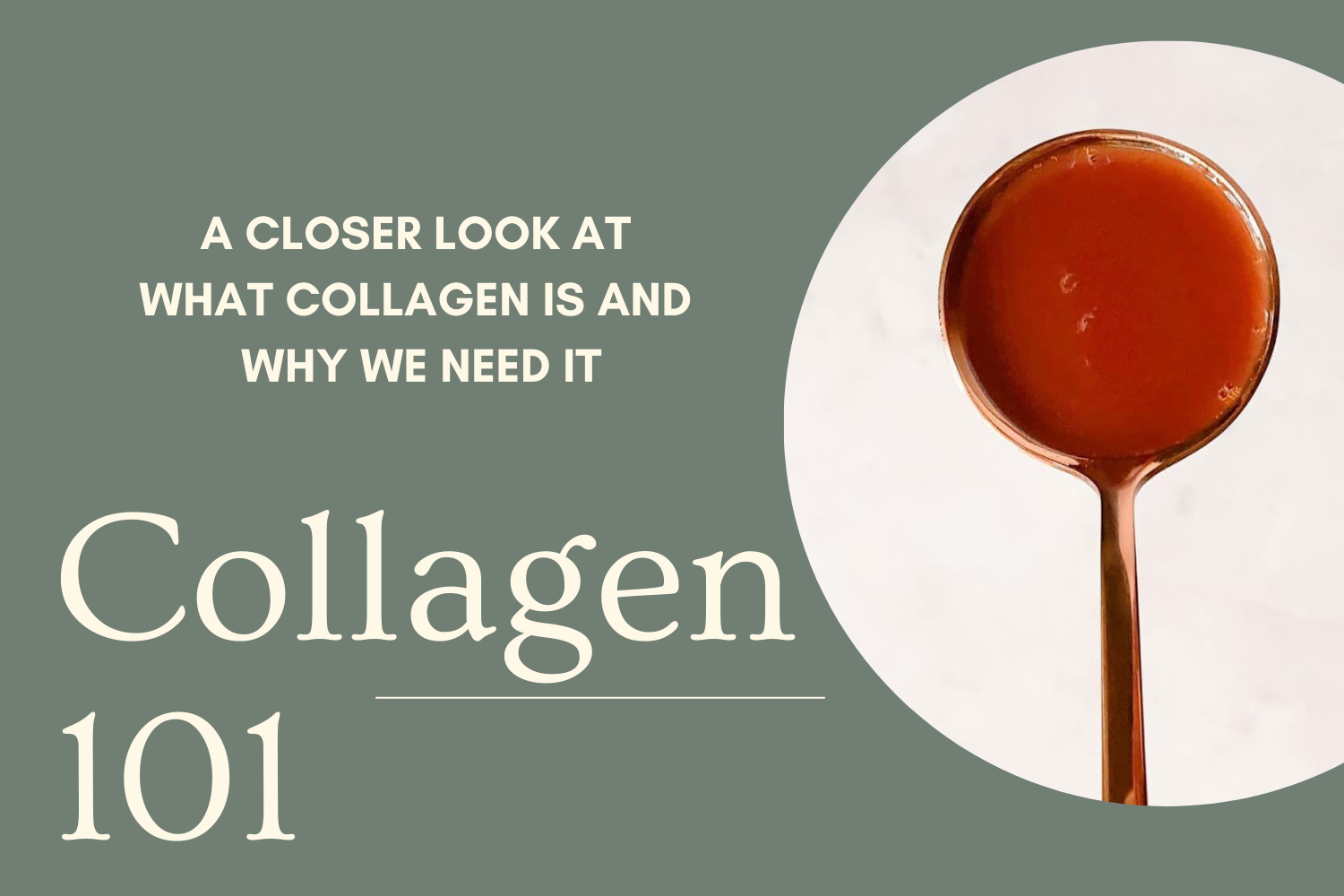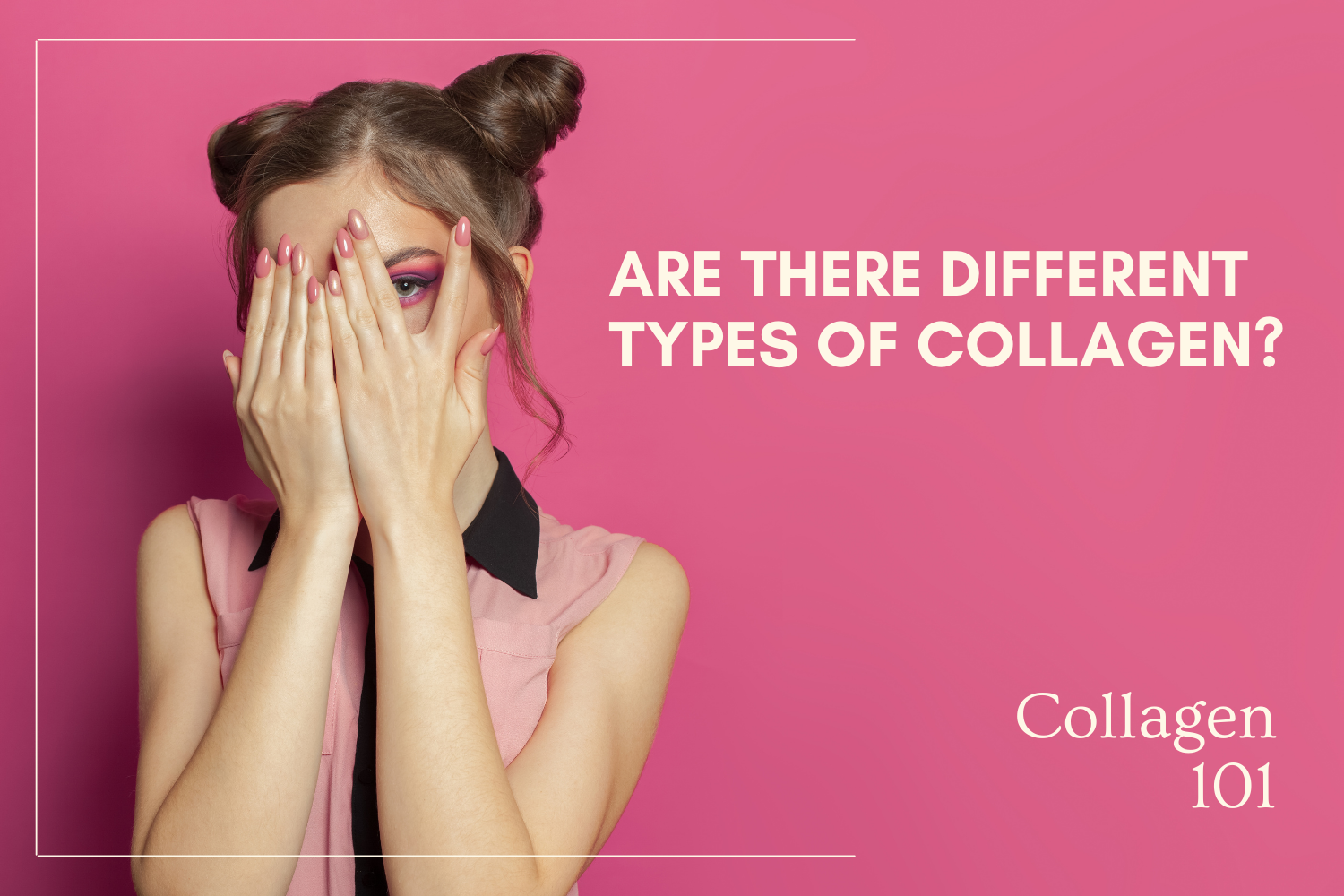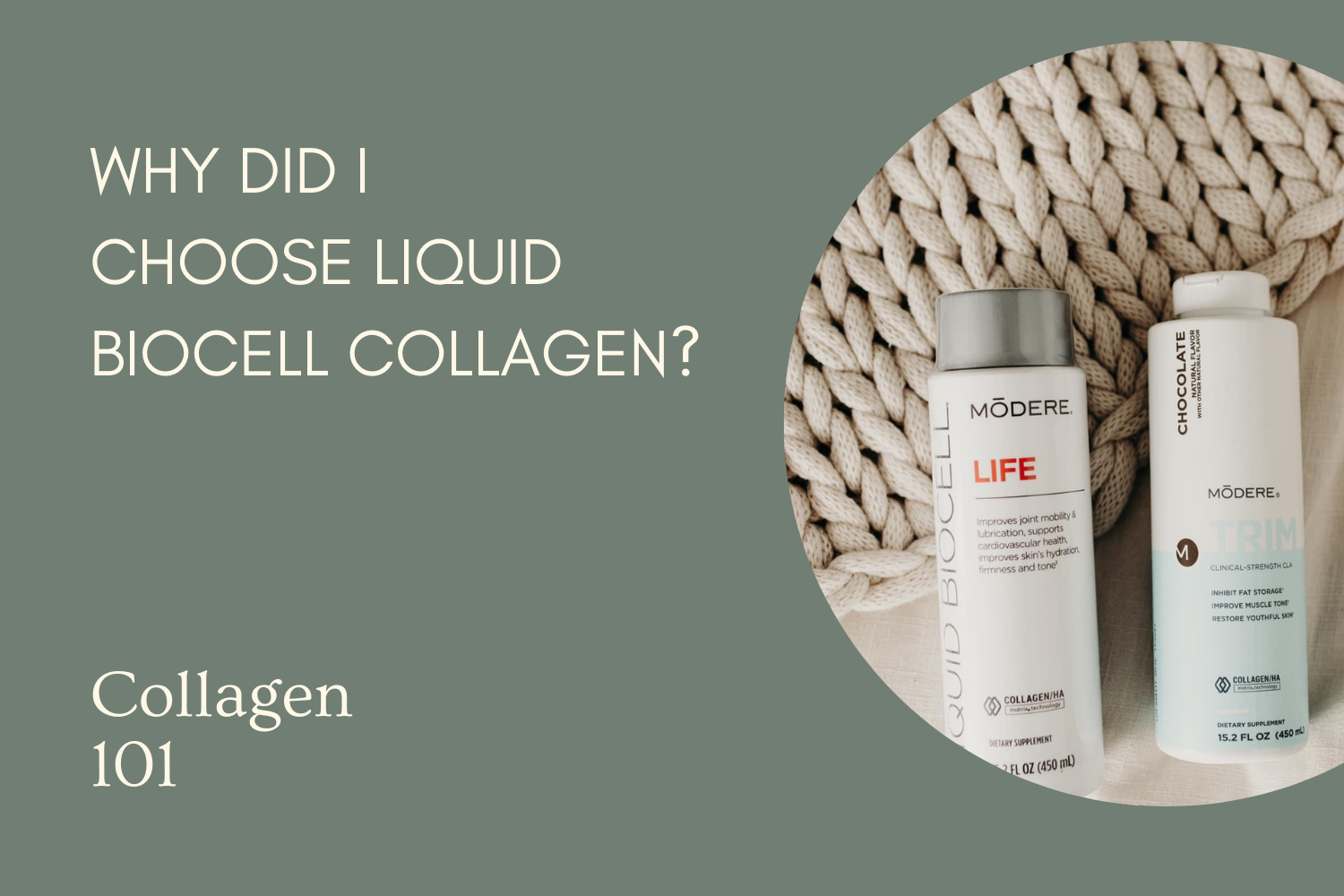
Collagen is SUPER trendy right now, but as with most things that get trendy it has been around for pretty much forever. Just because it is trendy doesn’t mean it’s not helpful or useful.
This week I sat down and wrote out the questions I found most helpful when I jumped into the world of collagen and started trying different brands. I first tried a liquid, then a powdered, and now I’m back to a liquid that checked off the questions below. I hope you find these questions as helpful as I have sorting through this topic. Below you will see those answers.
TIP ✨The first question was the biggest for me, but I needed to start with #’s 2-5 to get #1 answered
Question #1 What is the best kind/brand for me of collagen?
Question #2 There are different types of collagen. What do they mean and what do they do?
Question #3 Does sourcing of the collagen matter? How is it harvested? Where does it come from?
Question #4 Is there a form that is more bioavailable? Simply put, is there a kind that my body can readily use and use quickly?
Question #5 Are the Collagens/Brands I am looking at backed by Clinical Studies with proven results? That simply means, can the company back up what they are selling? The proof is in the pudding
Let's DIG IN!

As we age our collagen production decreases & our existing collagen begins to breakdown This causes the strength & structure of our skin, gut lining, and joints to decline. In fact, you lose about 1% of your collagen every year, so by age 50 you have nearly 30% less collagen than you did at age 20, and almost 50% less collagen by the time you're 70.

Collagen is the main structural protein in the body. It is crucial for skin elasticity, gut health, healthy joints, muscles, tendons, cartilage & bones.

Most collagen on the market is type / or I/Ill hydrolyzed collagen. Hydrolyzed means it has been broken down and denatured from its normal existence. It is a cheaper source mostly derived from the skin/hooves/caucuses of bovine and pig. Marine collagen comes primarily from farmed fish skin and provides collagen type I. Research has shown very little efficacy with this type of collagen
Breakdown of the types I, Il & Ill:
TYPE I: Hydrolyzed - Derived from porcine skin, bovine hide, eggshell membrane or fish, this collagen type is commonly sold as bone broth or collagen powder.
TYPE II: Undenatured, unhydrolyzed collagen. Mostly derived from chickens
TYPE Ill: Hydrolyzed - Often derived from bovine source

When choosing collagen it is important to check that it is both ethically and sustainably sourced, not only for environmental obligations but also because of the impact that the treatment and environment of the source has on it's nutritional profile and benefits.
Marine collagen. It is made from GMO factory-farmed tilapia - often the eyes, scales, and other leftover parts of the fish. This is proven by the fact that it typically has protein listed in it. Pure collagen is NOT a dietary protein. If you see protein listed in a collagen supplement, it comes from the random ground-up animal parts. Essentially, it is “the hot dog of collagens” Marine collagen is also notoriously high in mercury, lead, arsenic, and BMAA which is linked with neurodegenerative diseases.
“Vegan” collagen. There is no such thing. Collagen is produced by animals (including humans! Though our production of collagen slows drastically after age 25, and it becomes necessary to supplement). There is no way to produce collagen from plants. So you’re wasting 100% of your money with this option. The best sources for collagen are cows and chickens, preferably chickens as theirs most closely mirror what our bodies produce naturally.
High-quality type II liquid collagen (best absorbed, and Modere’s is clinically proven to act as type I, II, and III in the body). Our great grandparents made collagen (bone broth) from chicken bones. Type II collagen does so much more than hair, skin, and nails (which it is incredible for). It’s also incredibly beneficial to gut health + joints. And I love that I’m covering the bases of type I, II, and III, and avoiding heavy metals and GMOs.

Is there a form that is more bioavailable? Simply put, is there a kind that my body can readily use and use quickly?
The liquid collagen I am using, has a patented process in creating the collagen into micromolecules so it's actually absorbable. That is HUGE!! What happens when a form of collagen you are taking is not readily available or the right size molecule to absorb? It will process out of your body through your normal detox functions. In return, wasting money!
Why do I choose liquid? Straight. up. Ease of use. It is easy to quickly take my dose of collagen. Oh, and it's tasty!

Liquid Biocell is a multi-patented collagen/hyaluronic acid matrix. The patented process shrinks the molecular size of the collagen to a size that can be used by our cells which is why it'sLiquid Biocell is Backed by multi-patented Collagen/HA Matrix® Technology, this proprietary ingredient is naturally derived from chicken sternal cartilage and hydrolyzed using a patented Bio-Optimized™ manufacturing process to achieve an ideal micro-molecule. so much more effective.
Biocell is a unique type II collagen that goes beyond most formulas' typical hydrolyzed bovine or marine collagen. This award-winning, single-source matrix is a naturally occurring combination of highly absorbable collagen with hyaluronic acid and chondroitin sulfate.
It is also backed by multi-patented Collagen/HA Matrix® Technology, this proprietary ingredient is naturally derived from chicken sternal cartilage and hydrolyzed using a patented Bio-Optimized™ manufacturing process to achieve an ideal micro-molecule.
WHAT IS HA?
HA is a molecule produced by the body and is key for skin moisture. 50% of HA in the body is found in the skin & production slows as we age. Liquid Biocell is clinically proven to increase HA by 6000%.


